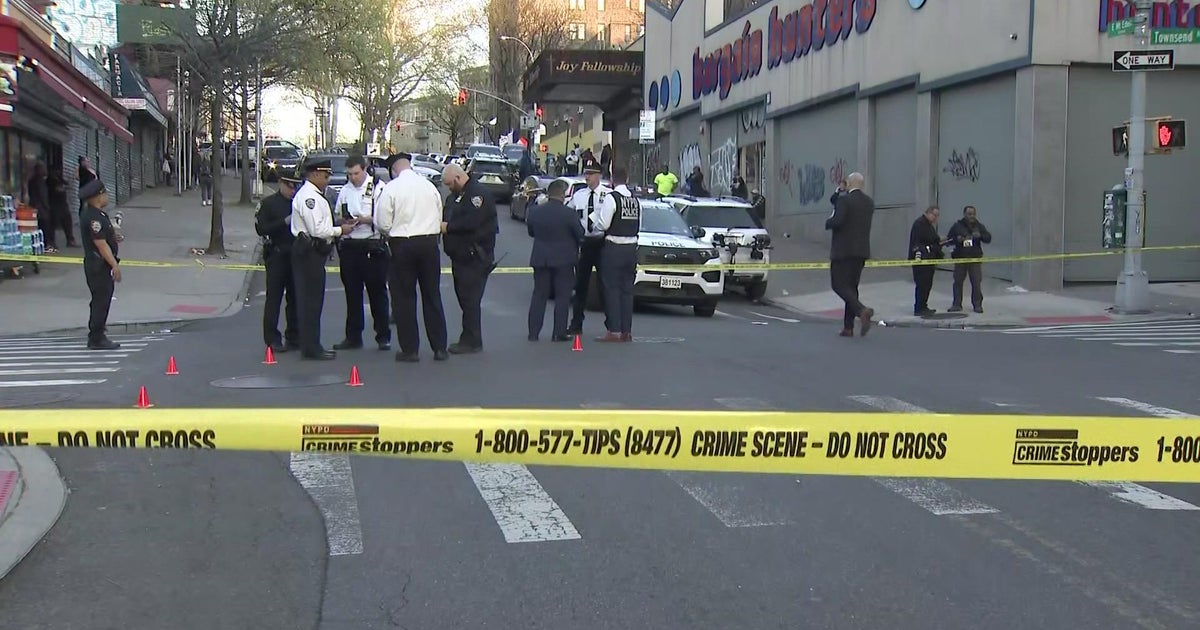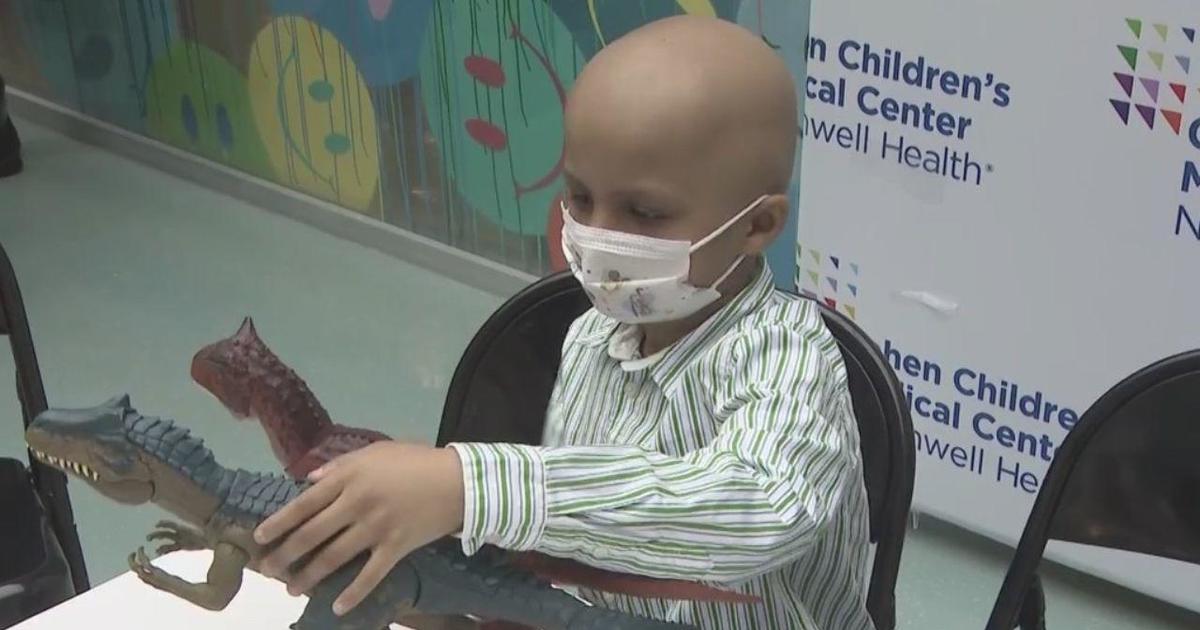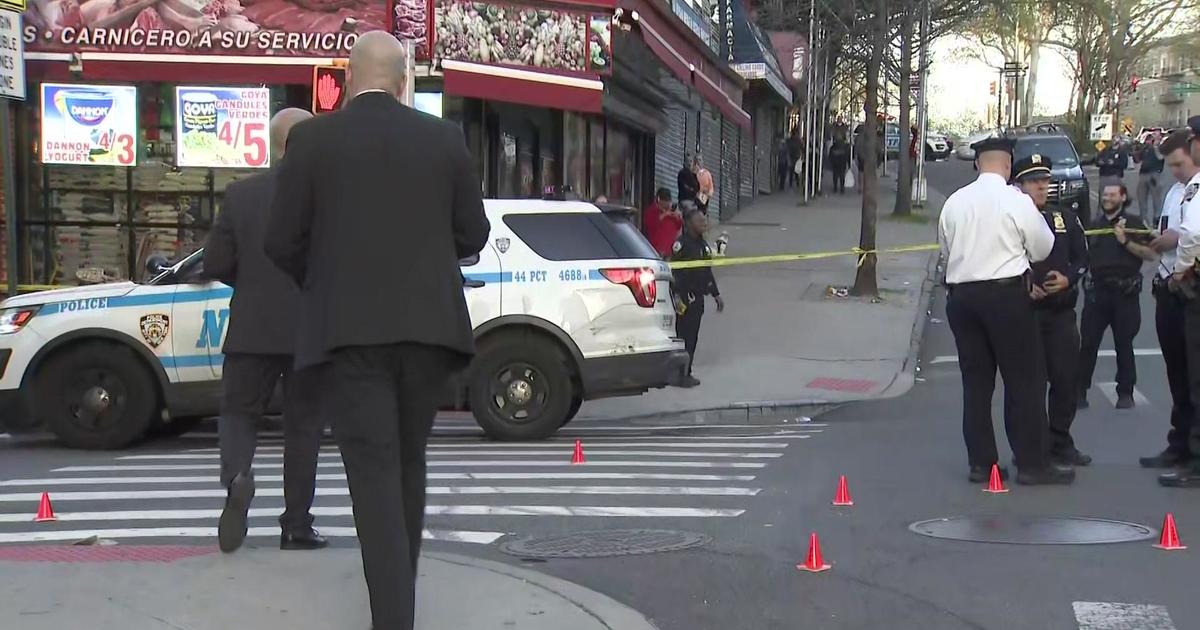Florida Governor: 4 Zika Cases Likely Came From Local Mosquitoes
MIAMI (CBSNewYork/AP) -- Florida's governor said Friday that the state has concluded that four mysterious Zika infections likely came from mosquitoes in the Miami area.
Gov. Rick Scott said Friday that no mosquitoes in the state have tested positive for Zika. But he said one woman and three men in Miami-Dade and Broward counties likely contracted the virus through mosquito bites.
"Now that Florida has become the first state to have a local transmission, likely through a mosquito, we will continue to put every resource available to fighting the spread of Zika in our state," Scott said.
Of the four patients, the Florida Department of Health said no one has been hospitalized.
More than 1,650 Zika infections have been reported in the U.S., but the four patients in Florida would be the first not linked to travel outside the U.S. mainland.
MORE ON ZIKA: Basics | FAQ | Info For Pregnant Women | Symptoms, Diagnosis & Treatment | 10 Facts About The Zika
As Lauren Pastrana of WFOR-TV, CBS4 Miami reported, one hip and colorful Miami neighborhood just north of downtown is now ground zero for Zika. Scott said the four Zika patients likely contracted the virus in or near the Wynwood community – known for its galleries and restaurants.
"We're taking this area and we're being very aggressive and testing people there," Scott said. "We're testing the mosquitoes there and we're spraying to make sure that it's contained."
Scott stressed that it is only one specific area in Miami where the Zika virus is being transmitted from mosquitoes to people.
"While no mosquito traps have tested positive for the Zika virus, the Department of Health is testing people in the affected area to make sure there are no other cases of the virus," he said.
People living in and visiting the affected area were concerned.
"That's really terrible news that it's coming so close to home," said Rebecca Rogers. "But I guess it makes sense because of the climate."
The state Health Department is testing people and mosquitoes in a one square-mile area of Miami in hopes of stopping further infection.
"The state is prepared and we've been prepared," Scott said. "We think about this just like we do a hurricane. The way you do well at this is you get ready."
Dr. Aileen Marty with Florida International University is one of the doctors whose been working to find the source of the four now confirmed cases.
"One the ways in which it's being done is analyzing mosquitoes in these areas, where these people who have not traveled and are infected, are from," she said. "And the other way is this door-to-door surveillance where we discover individuals who may have had symptoms similar."
Local mosquito control workers are targeting those same neighborhoods to eliminate mosquitoes and their breeding grounds.
Further, the Centers for Disease Control said it is closely coordinating with Florida officials and has sent a CDC medical epidemiologist to provide additional assistance.
"We will continue to support Florida's efforts to investigate and respond to Zika and will reassess the situation and our recommendations on a daily basis," Tom Frieden, director of the CDC said in a statement.
Meanwhile, just this week, the Food and Drug Administration called for blood collection to stop in South Florida until each unit of blood can be screened for the virus using an FDA approved test.
"It uses what's essentially a DNA Xerox machine, or an RNA Xerox machine in this case, to amplify that genetic material to the point where we can detect it," said Creative Testing Solutions Vice President Phillip Williamson.
But blood collection is still allowed at OneBlood, the largest collection company in the region.
"OneBlood implemented systemwide testing for the Zika virus effective immediately, so all collections in South Florida and throughout our entire service area are now being tested for the Zika virus," said Susan Forbes of OneBlood.
The fight also continues for prevention and protection.
Dr. Matthew DeGennaro studies mosquito behavior and genetics. He's researching how to improve mosquito repellent.
"Well, what we need to do is develop a spatial repellent so something that you can put in a room or an area and then the mosquitoes avoid that area," he said. "And this would be useful not only in the United States, but in other countries where they're really suffering from mosquito-borne illnesses."
Immunologist Dr. Anthony Fauci said scientists are fast-tracking the development of a vaccine.
"If you look at what's happened over the last several months, and to a few months ago, to last month, to last week, to yesterday, this is indeed a pandemic in process," said Fauci, of the National Institute of Allergy and Infectious Diseases.
The CDC said more Zika cases can be expected within the U.S.
"We anticipate that there may be additional cases of 'homegrown' Zika in the coming weeks," Lyle Petersen, incident manager for CDC's Zika virus response, said in a statement. "Our top priority is to protect pregnant women from the potentially devastating harm caused by Zika."
Meanwhile, as CBS2's Dick Brennan reported, many are now wondering whether Zika can strike in New York. New York City Deputy Mayor for Health Dr. Herminia Palacio emphasized that there is a plan in place.
"Our mosquito Zika action plan is built on the very infrastructure that we have to test West Nile virus," she said.
Palacio said the mosquito in the Tri-State area is not exactly the same as the one spreading Zika. The species Aedes aegypti is to blame for the spread of Zika in Florida and Latin America, and Palacio said it has never been seen in the New York City area.
"We are cautiously optimistic that our mosquito is not going to become an effective transmission vehicle for the Zika virus," Palacio said.
But health officials did say they are changing their plans -- they will be capturing more mosquitoes in New York, and will be spraying earlier.
"We anticipate out doing our first seasonal spraying the same type of spraying for West Nile, but doing it on Monday," Palacio said.
The city said to make sure to eliminate standing water. Incredibly, even a bottle cap full of water is enough for the Zika-carrying mosquito.
Possible Zika Signs And Symptoms
Zika primarily spreads through bites from tropical mosquitoes. As CBS2's Dr. Max Gomez reported, most people won't even know they have been infected by Zika, because it often causes no symptoms at all or just mild symptoms.
For those who do have symptoms, the most common include fever, rash, joint or muscle pain, conjunctivitis – also known as pink eye – and a headache. The symptoms usually last just a few days to a week.
Rare cases may involve Guillain-Barré syndrome, causing muscle weakness and even paralysis.
As CBS2's Brian Conybeare reported, Dr. Fauci said 80 percent of people get no symptoms, while 20 percent get fairly mild ones.
Infected people are rarely sick enough to go to the hospital and almost never die of Zika.
The real issue is for pregnant women who are at greatest risk because the virus can cause devastating birth defects such as microcephaly, where the baby's brain fails to develop normally.
Lacking a vaccine or treatment, the best protection against Zika is prevention of mosquito bites, Dr. Gomez reported. That means using insect repellent containing the ingredient DEET.
People should also wear long sleeves and long pants, ideally tucked into socks. Finally, people should avoid being out at dusk or dawn when mosquitoes tend to feed, and avoid wooded areas or freshwater lakes and ponds where they breed.
Finally, infected men and women can transmit the Zika virus through sexual contact, so the CDC recommends safe sex practices for anyone who has been to areas known to have Zika.
"I don't think people need to panic about this," Gomez told CBS2's Conybeare. "This is something to keep an eye on."
On Monday, New York City will start spraying pesticides in parts of Staten Island and Queens to kill adult mosquitoes that could carry either Zika or West Nile.
And anyone thinking of heading down to Miami for a getaway need not worry. There are no travel restrictions in place related to the Zika developments.
(TM and © Copyright 2016 CBS Radio Inc. and its relevant subsidiaries. CBS RADIO and EYE Logo TM and Copyright 2016 CBS Broadcasting Inc. Used under license. All Rights Reserved. This material may not be published, broadcast, rewritten, or redistributed. The Associated Press contributed to this report.)



